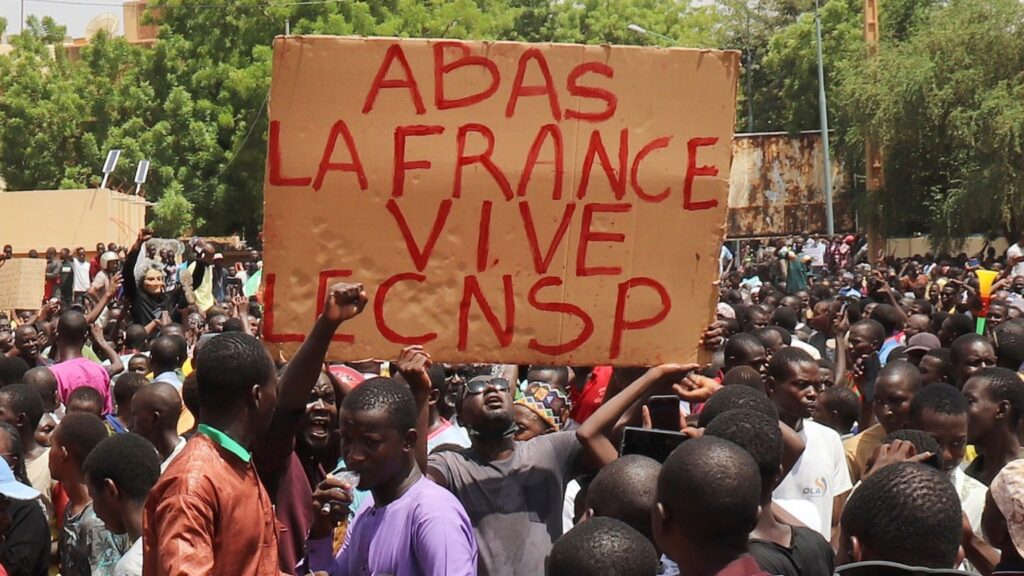
Today at WPR, we’re covering Mexico’s foreign policy under AMLO and the recently announced India-Middle East-Europe Corridor.
But first, here’s our take on today’s top story:
Niger: France will withdraw its remaining troops from Niger by the end of the year, President Emmanuel Macron said yesterday, while the country’s ambassador left the country yesterday. The move follows weeks of increasing tensions between France and the military leaders who seized power in a coup in Niger in late July. (New York Times)
Our Take: The erosion of France’s position in West Africa was the geopolitical equivalent of a Hemingway bankruptcy: It happened gradually, then suddenly. For the past three years, a series of coups in Mali and Burkina Faso gradually diminished France’s role as a security partner in the fight against armed Islamist groups in the Sahel region. In response, France pivoted its Sahel security strategy to Niger, with which it enjoyed better relations and more success on the ground.
As such, the coup in Niger represented the sudden, final nail in the coffin for that strategy. Following the coup, France refused to engage with Niger’s military junta and said it would withdraw neither its troops nor its ambassador from the country. That position, however, became increasingly untenable, and Macron’s announcement yesterday signals a tacit acceptance on the part of France—and probably its Western allies—that the coup is not going to be reversed.
France will now be forced to rethink its entire approach to the Sahel and the broader West African region. In its engagement with regional governments over the past decade, Paris has largely failed to prioritize the strength of democratic institutions and good governance, necessary preconditions to long-term stability in the Sahel. Now, with the loss of its final staging ground for security operations in the region, France will have to rebuild its relationships from the foundations up.
France’s withdrawal also leaves security operations in the Sahel more broadly at an impasse. The juntas in Mali and Burkina Faso have had no success in countering armed Islamist groups that continue to gain ground, and there is no obvious alternative as an effective security partner.
The U.S. maintains some forces in Niger, but that presence is now tenuous at best and relied for its effectiveness in part on the presence of French forces on the ground. Russia had attempted to position the Wagner Group as just such an alternative, but the group’s fighters had found little success even before its future became uncertain in the aftermath of Yevgeny Prigozhin’s recent mutiny and subsequent death.
France’s decision to withdraw from Niger serves as an acknowledgement that a decade-long era of Western security engagement with the Sahel is over. The question now is: What comes next?
As columnist James Bosworth writes, Lopez Obrador, known as AMLO, spends weeks ignoring everything beyond Mexico’s borders and then punctuates his brief surges of foreign policy interest with symbolic anti-imperialist rhetoric rather than a strategic vision for achieving concrete policy outcomes. That lack of focus is why the Mexican president has seen many of his foreign policy sorties simply fall to the wayside.
Everyone Wants the IMEC, but Not for the Same Reasons
One of the more significant initiatives to emerge from the G-20 Summit earlier this month was the India-Middle East-Europe Corridor, or IMEC, which will create a multi-mode transit corridor joining two branches by rail and sea. The eastern branch links India to the Gulf, while the northern branch connects the Gulf to Europe.
For Washington and Brussels, the project represents an attempt to mold partnerships with states in South Asia and the Middle East in line with Western interests. For India, the UAE and Saudi Arabia, however, their participation in the project does not reflect a desire to choose sides amid an era of great power competition, Mohammed Soliman writes.
